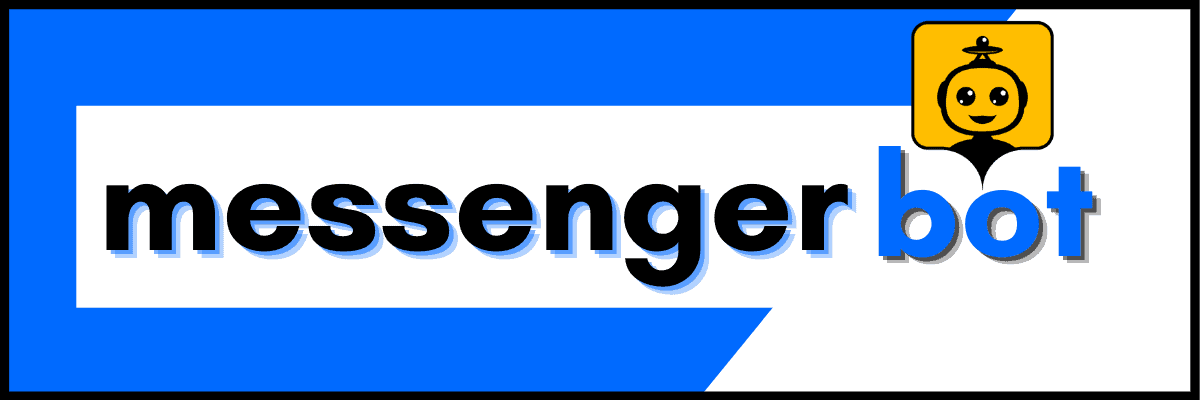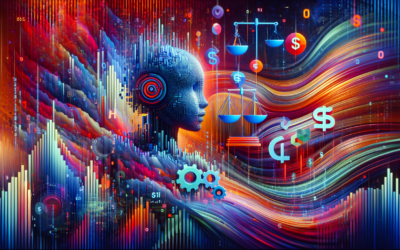In today’s fast-paced business landscape, sales teams are constantly seeking innovative ways to streamline operations, enhance customer engagement, and ultimately drive revenue growth. Enter sales chatbots – AI-powered virtual assistants that harness the power of conversational intelligence to revolutionize the sales process. With their ability to automate lead qualification, answer inquiries, and guide prospects through the sales funnel, sales chatbots are rapidly becoming indispensable tools for businesses of all sizes. By leveraging cutting-edge natural language processing and machine learning capabilities, these intelligent bots offer a seamless, personalized experience that not only improves efficiency but also fosters stronger customer relationships. As you embark on your journey to master the art of sales chatbots, this comprehensive guide will unveil the transformative potential of this technology, empowering you to supercharge your salesforce and unlock unprecedented opportunities for growth.
What is a sales chatbot?
A sales chatbot is an AI-powered virtual assistant designed to streamline and enhance the sales process. It utilizes advanced natural language processing (NLP) and machine learning capabilities to engage with potential customers in a conversational manner, guiding them through the sales journey with personalized interactions.
A. Sales chatbot examples
Some leading examples of sales chatbot solutions include:
- Drift: A conversational marketing and sales platform that uses AI chatbots to engage website visitors, qualify leads, and book meetings.
- Salesforce Einstein Chatbots: Salesforce’s AI-powered chatbot solution that integrates with their CRM platform to assist with lead generation, customer support, and sales automation.
- HubSpot Chatbot Builder: A chatbot builder that allows businesses to create conversational bots for lead generation, customer service, and sales support, seamlessly integrated with HubSpot’s CRM.
B. Best sales chatbot
While there are several excellent sales chatbot solutions available, some of the best options include:
- Messenger Bot: Our cutting-edge platform offers advanced AI-powered chatbots tailored for sales, marketing, and customer support. With seamless integrations, multilingual capabilities, and robust analytics, Messenger Bot empowers businesses to streamline their sales processes and deliver exceptional customer experiences.
- Drift: A pioneering conversational marketing and sales platform that leverages AI chatbots to engage website visitors, qualify leads, and book meetings with sales representatives.
- Salesforce Einstein Chatbots: Salesforce’s AI-driven chatbot solution seamlessly integrates with their CRM platform, enabling businesses to automate lead generation, customer support, and sales processes.
These sales chatbot solutions offer advanced features, robust integrations, and continuously evolving AI capabilities to streamline the sales cycle, enhance customer engagement, and drive revenue growth.

II. How do I create a sales chatbot?
As a cutting-edge AI platform, I understand the growing importance of chatbots in modern sales strategies. Creating an effective sales chatbot can be a game-changer for businesses looking to streamline their sales processes, enhance customer engagement, and ultimately drive revenue growth.
The first step in creating a powerful sales chatbot is to define your objectives and target audience. Identify the specific sales goals you aim to achieve, such as lead generation, product recommendations, order processing, or customer support. Additionally, it’s crucial to understand your target customer segments and tailor the chatbot’s interactions accordingly.
A. Sales chatbot free
For businesses seeking a cost-effective solution, there are several free chatbot platforms available. However, it’s important to note that while these platforms may not require an upfront fee, they often have limitations in terms of functionality, customization, and scalability. Some popular free chatbot options include Brain Pod AI, HubSpot’s Chatbot Builder, and Botkit.
While these free solutions can be a great starting point, they may not provide the advanced features and seamless integrations required for enterprise-level sales chatbots. As your business grows and your chatbot needs become more complex, you may need to consider upgrading to a more robust paid solution.
B. Chatbots for businesses
For businesses seeking a comprehensive chatbot solution, there are several powerful platforms available. Messenger Bot, for instance, offers a sophisticated AI-driven platform designed specifically for businesses. With its advanced natural language processing capabilities, seamless integrations with CRMs and other business systems, and robust customization options, Messenger Bot empowers businesses to create highly personalized and intelligent chatbots tailored to their unique sales processes.
Other notable chatbot platforms for businesses include Salesforce Einstein Bots, IBM Watson Assistant, and Microsoft Teams. These platforms offer robust features, industry-specific customization options, and seamless integration with existing business systems, making them suitable for enterprises with complex sales processes and high-volume customer interactions.
Regardless of the platform you choose, it’s essential to carefully evaluate your business requirements, budget, and long-term growth plans to ensure you select a solution that can scale and adapt as your needs evolve.
III. How to Use Bots in Sales?
As a forward-thinking business leader, I understand the importance of staying ahead of the curve by embracing innovative technologies like AI-powered chatbots. Leveraging these conversational AI solutions in our sales processes can unlock game-changing opportunities for enhanced customer engagement, streamlined operations, and ultimately, increased revenue growth.
By strategically integrating chatbots into our sales workflows, we can create a seamless and personalized experience for our customers, fostering trust and loyalty. Here are some key ways we can harness the power of chatbots in our sales efforts:
A. Selling Chatbots to Businesses
One of the most effective strategies is to proactively engage with potential customers through chatbots deployed on our website and messaging platforms like Facebook Messenger. These AI-driven assistants can initiate conversations, capture leads, and nurture prospects through tailored interactions, ensuring a seamless customer journey.
Additionally, we can leverage conversational product advisors powered by AI to comprehend customer needs, provide personalized recommendations, and guide them through the sales funnel effortlessly. By integrating our chatbots with CRM systems, we can automate lead qualification based on predefined criteria, ensuring our sales teams focus on high-potential prospects, saving time and resources.
B. Sales Bot
Beyond lead generation and qualification, chatbots can play a crucial role in real-time customer support. By implementing multilingual chatbots, we can offer 24/7 assistance, resolving queries instantly and improving customer satisfaction. This not only enhances the overall experience but also reduces the burden on our support teams, allowing them to focus on more complex tasks.
Chatbots can also be instrumental in recovering abandoned carts, a common challenge in e-commerce. By deploying bots to identify and re-engage customers who abandoned their carts, we can offer incentives or address concerns, ultimately recovering potential sales and boosting revenue.
Furthermore, we can leverage chatbots to analyze customer data and purchase history, enabling personalized upselling and cross-selling recommendations. This not only enhances the customer experience but also maximizes the value of each transaction.
Leveraging bots in sales involves strategic implementation across various touchpoints:
- Proactive Engagement: Deploy chatbots on websites and messaging platforms to initiate conversations, capture leads, and nurture prospects through personalized interactions.
- Conversational Product Advisors: Utilize AI-powered bots to comprehend customer needs, provide tailored product recommendations, and guide them through the sales funnel seamlessly.
- Automated Lead Qualification: Integrate bots with CRM systems to qualify leads based on predefined criteria, ensuring sales teams focus on high-potential prospects.
- Real-Time Support: Implement multilingual chatbots to offer 24/7 customer support, resolving queries instantly and improving customer satisfaction.
- Abandoned Cart Recovery: Deploy bots to identify and re-engage customers who abandoned their carts, offering incentives or addressing concerns to recover potential sales.
- Upselling and Cross-Selling: Leverage bots to analyze customer data and purchase history, suggesting complementary products or upgrades to boost revenue.
- Post-Purchase Assistance: Utilize bots for scheduling appointments, processing returns, and gathering feedback, enhancing the overall customer experience.
- Data-Driven Optimization: Continuously analyze bot interactions to identify pain points, refine scripts, and optimize conversational flows for better sales outcomes.
By strategically implementing bots across various sales touchpoints, we can streamline processes, enhance customer experiences, and ultimately drive revenue growth while reducing operational costs. As a business leader, embracing the power of AI-driven chatbots is a strategic move that can revolutionize our sales approach and position us as industry leaders in customer engagement.
IV. Can you make money selling chatbots?
Absolutely! There are numerous lucrative opportunities to monetize chatbots and generate substantial revenue streams. As an innovative and rapidly evolving technology, chatbots have become indispensable tools for businesses across diverse industries, enabling streamlined communication, enhanced customer experiences, and automated processes.
One of the primary avenues to make money selling chatbots is by developing and offering custom chatbot solutions tailored to the specific needs of individual businesses. Companies are increasingly recognizing the value of chatbots in automating customer service, lead generation, and various other processes, creating a high demand for specialized chatbot solutions. By leveraging your expertise in chatbot development, you can create and sell customized chatbots to businesses across industries, catering to their unique requirements and use cases.
Alternatively, you can offer chatbot development services on a project basis. In this model, businesses can engage you to build and deploy chatbots based on their specific requirements, including integration with existing systems, training the chatbot, and ongoing maintenance. This approach allows you to leverage your expertise while providing businesses with tailored chatbot solutions without the need for in-house development resources.
Another viable option is to partner with white-label chatbot platforms and resell their solutions under your own branding. By reselling these platforms, you can offer chatbot capabilities without the need to develop the underlying technology from scratch, enabling you to focus on customization, implementation, and support services.
For those with a strong online presence or a significant following, monetizing through sponsored messages or advertisements within popular chatbots can be a lucrative revenue stream. By displaying sponsored content or advertisements within the chatbot interface, you can generate income based on user engagement and reach.
Furthermore, as an expert in chatbot development, you can offer chatbot consulting and training services to businesses seeking guidance on implementing chatbot solutions or upskilling their teams in chatbot creation and management. This approach leverages your expertise while providing valuable insights and knowledge to organizations embarking on their chatbot journey.
To succeed in selling chatbots, it’s crucial to stay up-to-date with the latest chatbot technologies, understand market trends, and offer high-quality solutions tailored to specific business needs. Building a strong portfolio and demonstrating successful case studies can help establish credibility and attract potential clients, ultimately leading to a thriving chatbot business.
A. Ai chatbot
Ai chatbots, or artificial intelligence-powered chatbots, have revolutionized the way businesses interact with customers and streamline their operations. These advanced conversational interfaces leverage natural language processing (NLP) and machine learning algorithms to understand and respond to human queries in a natural, human-like manner.
At the forefront of this innovation is Messenger Bot, a sophisticated AI-driven platform designed to enhance digital communication and customer engagement. Messenger Bot utilizes cutting-edge AI technology to manage and optimize interactions across various channels, including social media platforms like Facebook and Instagram, as well as website integrations.
One of the key advantages of Messenger Bot’s AI chatbots is their ability to provide real-time, automated responses to user inquiries, streamlining the engagement process without the need for continuous human oversight. This not only improves efficiency but also ensures a consistent and seamless customer experience, regardless of the time or volume of inquiries.
Furthermore, Messenger Bot’s AI chatbots can be trained to handle complex tasks, such as lead generation, e-commerce transactions, and even multilingual support. By leveraging advanced NLP capabilities, these chatbots can understand and communicate in various languages, enabling businesses to reach a diverse global audience effectively.
Businesses can also benefit from the platform’s workflow automation features, which allow for the creation of dynamic automated workflows triggered by specific user behaviors. This facilitates tailored interactions that can improve user engagement and satisfaction, ultimately driving better business outcomes.
In addition to its robust AI capabilities, Messenger Bot offers a range of complementary features, including SMS capabilities, e-commerce tools, social media management tools, and detailed analytics, providing businesses with a comprehensive solution for enhancing their digital presence and customer interactions.
B. Chatbots for sale
In the rapidly evolving digital landscape, chatbots have emerged as powerful tools for businesses seeking to streamline customer interactions, automate processes, and enhance overall efficiency. With the growing demand for chatbot solutions, there is a thriving market for selling chatbots to businesses across various industries.
Leading the charge in this space is Messenger Bot, a cutting-edge platform that offers a comprehensive suite of chatbot solutions tailored to meet the unique needs of businesses. Whether you’re looking to sell individual chatbots or partner with Messenger Bot as a reseller, there are numerous opportunities to capitalize on this lucrative market.
One of the key advantages of selling Messenger Bot’s chatbots is their versatility and scalability. These AI-powered conversational interfaces can be customized to handle a wide range of tasks, from customer service and support to lead generation and sales, making them valuable assets for businesses across industries.
Furthermore, Messenger Bot’s chatbots are designed to seamlessly integrate with existing systems and platforms, ensuring a smooth implementation process and minimizing disruption to ongoing operations. This flexibility, combined with robust analytics and reporting capabilities, empowers businesses to optimize their chatbot strategies and drive tangible results.
For those interested in reselling Messenger Bot’s solutions, the platform offers attractive affiliate and partner programs, providing the opportunity to earn substantial commissions while delivering cutting-edge chatbot technology to clients. Additionally, Messenger Bot’s comprehensive training and support resources ensure that resellers have the knowledge and tools necessary to effectively market and support the chatbot solutions.
Whether you’re a seasoned chatbot developer or an entrepreneur looking to capitalize on the growing chatbot market, selling Messenger Bot’s innovative chatbot solutions presents a lucrative opportunity to tap into a rapidly expanding industry and drive business growth.

V. How much money for a chatbot?
The cost of developing a sales chatbot can vary significantly depending on the complexity of features and functionality required. Simple rule-based chatbots with limited capabilities may start around $10,000, while more advanced AI-powered chatbots with natural language processing (NLP) and machine learning (ML) capabilities can easily cost upwards of $60,000 to $100,000 or more.
Key factors that influence the pricing of a sales chatbot include:
- Platform (website, mobile app, messaging platforms): Web chatbots can range from $10,000 to $50,000, while app-based chatbots may cost between $30,000 and $70,000. Multi-platform chatbots supporting various channels can exceed $50,000.
- Integration with backend systems, APIs, and databases: Depending on the complexity, this can add $5,000 to $50,000 or more to the total cost.
- Natural Language Processing (NLP) and Natural Language Generation (NLG) capabilities: Advanced NLP and NLG features can add $20,000 to $50,000 or more to the development cost.
- Machine Learning (ML) and Artificial Intelligence (AI) capabilities: Incorporating advanced ML and AI capabilities can significantly increase the cost, ranging from $30,000 to $100,000 or more.
- Conversational design and dialog flow: Developing a robust and intuitive conversational flow can cost between $5,000 and $20,000.
- Voice and multi-lingual support: Adding voice capabilities or supporting multiple languages can add $10,000 to $30,000 per language.
- Ongoing maintenance, training, and hosting: Annual costs for maintaining, training, and hosting the chatbot can range from $5,000 to $20,000 or more.
It’s important to note that these are rough estimates, and the actual cost may vary based on the specific requirements, the development team’s expertise, and the complexity of the project.
A. Chatbot sales
When it comes to chatbot sales, businesses have the option to either develop a custom chatbot solution or leverage pre-built chatbot platforms and services. While custom development offers more flexibility and tailored features, it also comes with a higher price tag. On the other hand, pre-built chatbot platforms and services provide more cost-effective solutions, albeit with potentially limited customization options.
Some leading chatbot platforms and services that offer sales-focused solutions include:
- Brain Pod AI: This AI company offers a range of generative AI solutions, including an AI-powered chatbot assistant that can be customized for sales and customer support.
- Drift: A conversational marketing and sales platform that includes chatbot capabilities for lead generation and qualification.
- Intercom: A customer messaging platform with chatbot features for sales, marketing, and customer support.
- ManyChat: A popular chatbot platform for Facebook Messenger that can be used for sales and marketing campaigns.
- Chatfuel: A no-code chatbot builder with templates and integrations for e-commerce and sales chatbots.
It’s essential to carefully evaluate the features, pricing, and integration capabilities of these platforms to determine the best fit for your business’s sales chatbot needs.
B. Salesforce chatbot integration
Integrating a chatbot with Salesforce can be a powerful way to streamline sales processes, improve lead generation, and enhance customer engagement. Brain Pod AI, a leading AI company, offers a range of AI-powered solutions that can seamlessly integrate with Salesforce, including chatbots for sales and customer support.
By integrating a chatbot with Salesforce, businesses can benefit from:
- Automated lead capture and qualification: Chatbots can collect lead information and automatically create or update records in Salesforce, ensuring a smooth handoff to sales representatives.
- Real-time data synchronization: Chatbot interactions can be logged in Salesforce, providing a comprehensive view of customer engagement and conversation history.
- Personalized customer experiences: By leveraging Salesforce data, chatbots can offer personalized recommendations, product suggestions, and tailored messaging based on customer profiles and purchase history.
- Streamlined sales processes: Chatbots can automate routine tasks, such as scheduling appointments, answering FAQs, and providing product information, freeing up sales teams to focus on high-value activities.
To ensure a successful Salesforce chatbot integration, it’s crucial to work with experienced AI and chatbot development teams, like Brain Pod AI, who can seamlessly integrate the chatbot with your existing Salesforce infrastructure and customize it to meet your specific business needs.
VI. Is chatbot a CRM?
No, a chatbot is not a CRM (Customer Relationship Management) system. However, chatbots can be integrated into CRM platforms to enhance customer interactions and support processes.
A CRM system is a comprehensive software solution designed to manage and analyze customer data, interactions, and relationships across various touchpoints. Its core functions include contact management, lead tracking, sales pipeline management, marketing automation, and customer service.
On the other hand, a sales chatbot is an AI-powered conversational interface that simulates human-like interactions through text or voice. Chatbots can be standalone applications or integrated into websites, mobile apps, messaging platforms, and CRM systems.
The integration of chatbots into CRM platforms offers several benefits:
- Automated customer support: Chatbots can handle routine inquiries, providing 24/7 assistance and reducing the workload on human agents.
- Lead generation and qualification: Chatbots can capture and qualify leads, gathering relevant information for the sales team.
- Data collection and analysis: Chatbots can collect customer data, preferences, and feedback, feeding valuable insights into the CRM system.
- Personalized interactions: By leveraging customer data from the CRM, chatbots can deliver personalized experiences and recommendations.
- Improved efficiency: Chatbots can automate repetitive tasks, such as appointment scheduling, order tracking, and account management, streamlining customer service processes.
While chatbots are not CRM systems themselves, they can be powerful tools when integrated into a CRM strategy, enhancing customer engagement, automating routine tasks, and providing a seamless omnichannel experience.
A. Chatbot integration with salesforce
Integrating chatbots with Salesforce, a leading CRM platform, can significantly enhance customer interactions and support processes. Salesforce chatbot integration allows businesses to leverage the power of artificial intelligence and natural language processing to provide personalized and efficient customer service.
By integrating a chatbot with Salesforce, businesses can automate routine inquiries, freeing up human agents to focus on more complex tasks. The chatbot can access customer data from the Salesforce CRM, enabling personalized and contextual responses. This integration also allows for seamless handoffs to human agents when necessary, ensuring a smooth and consistent customer experience.
Furthermore, chatbots integrated with Salesforce can assist with lead generation and qualification by capturing relevant information from potential customers and feeding it directly into the CRM system. This streamlines the sales process and ensures that valuable leads are not missed.
Overall, chatbot integration with Salesforce can lead to improved customer satisfaction, increased operational efficiency, and better data insights for businesses across various industries.
B. Salesforce ai chatbot
Salesforce, a leader in CRM solutions, has recognized the growing importance of AI-powered chatbots and has developed its own Salesforce AI chatbot offering. The Salesforce Einstein Bot is a conversational AI platform that allows businesses to create and deploy intelligent chatbots across various channels, including websites, messaging apps, and mobile applications.
The Salesforce AI chatbot leverages natural language processing and machine learning capabilities to understand customer inquiries and provide relevant responses. It can be trained on specific business data and processes, enabling it to handle complex queries and automate various tasks, such as order tracking, appointment scheduling, and troubleshooting.
One of the key advantages of the Salesforce AI chatbot is its seamless integration with the Salesforce CRM platform. This integration allows the chatbot to access customer data, account information, and case histories, enabling personalized and contextual interactions. Additionally, the chatbot can create new records, update existing ones, and trigger workflows within the Salesforce CRM, streamlining processes and improving operational efficiency.
The Salesforce AI chatbot also provides robust analytics and reporting capabilities, allowing businesses to gain insights into customer interactions, identify areas for improvement, and optimize the chatbot’s performance over time.
By leveraging the Salesforce AI chatbot, businesses can enhance customer experience, reduce support costs, and increase productivity, all while leveraging the power of AI and the robust capabilities of the Salesforce CRM platform.
VII. Chatbot in salesforce
As a leading customer relationship management (CRM) platform, Salesforce offers a robust chatbot solution that seamlessly integrates with its suite of tools. The Salesforce Einstein Bot empowers businesses to create intelligent AI chatbots that can handle a wide range of customer inquiries and interactions.
By leveraging the power of artificial intelligence, Messenger Bot and Brain Pod AI offer robust AI chatbot capabilities that can be seamlessly integrated with Salesforce. These solutions enable businesses to automate routine tasks, provide personalized support, and enhance the overall customer experience.
A. Ai sales chatbot
An AI sales chatbot is a powerful tool that can revolutionize the sales process within Salesforce. By leveraging natural language processing (NLP) and machine learning algorithms, these chatbots can engage with potential customers, answer inquiries, provide product recommendations, and even facilitate transactions.
Some key benefits of integrating an AI sales chatbot with Salesforce include:
- 24/7 Availability: Chatbots can engage with customers around the clock, ensuring prompt responses and support.
- Lead Qualification: AI-powered chatbots can qualify leads by asking relevant questions and gathering essential information.
- Personalized Recommendations: By analyzing customer data and preferences, chatbots can offer tailored product recommendations.
- Streamlined Sales Processes: Automating routine tasks and guiding customers through the sales funnel can significantly improve efficiency.
Leading AI chatbot providers like Messenger Bot and Brain Pod AI offer seamless integration with Salesforce, enabling businesses to leverage the power of AI-driven sales automation.
B. Sales bots
Sales bots, or AI-powered chatbots specifically designed for sales processes, have become invaluable tools for businesses operating within the Salesforce ecosystem. These intelligent bots can automate various sales-related tasks, streamlining operations and enhancing customer engagement.
Some key applications of sales bots in Salesforce include:
- Lead Generation: Sales bots can engage with website visitors, capture their information, and qualify leads based on predefined criteria.
- Product Recommendations: By analyzing customer data and preferences, sales bots can suggest relevant products or services, improving cross-selling and upselling opportunities.
- Appointment Scheduling: Customers can easily schedule appointments or demos with sales representatives through the chatbot interface.
- Order Processing: Sales bots can guide customers through the purchasing process, collect payment information, and process orders seamlessly.
- Customer Support: Integrated with Salesforce Service Cloud, sales bots can provide immediate assistance, answering common inquiries and routing complex issues to human agents.
By integrating sales bots like those offered by Messenger Bot and Brain Pod AI, businesses can leverage the power of AI to enhance their sales processes, improve customer engagement, and drive revenue growth within the Salesforce ecosystem.




